Northwestern Computer Science Postdocs and PhD Students Secure Faculty Positions
Outgoing Northwestern Computer Science PhD students Chenkai Weng and Peng Kang and postdoctoral fellows Hedyeh Beyhaghi, Angelos Chatzimparmpas, Eric Evert, Yiding Feng, Suprovat Ghoshal, Saurabh Kumar, Vishesh Kumar, Yingkai Li, Ning Luo, and Fumeng Yang have secured positions in academia to continue pursuing research and mentorship goals during the next stage of their careers.
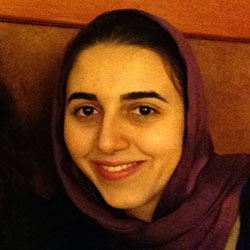 Hedyeh Beyhaghi
Hedyeh Beyhaghi
PhD adviser: Eva Tardos (Cornell University)
Postdoc mentors: Jason Hartline and Samir Khuller (Northwestern) and Avrim Blum (Toyota Technological Institute)
This fall, Beyhaghi will join the University of Massachusetts Amherst’s Manning College of Information and Computer Sciences as an assistant professor.
After completing a joint postdoctoral research fellowship at Northwestern Engineering and the Toyota Technological Institute (TTIC) — advised by Samir Khuller, Jason Hartline, and Avrim Blum — Beyhaghi joined the theory group at Carnegie Mellon University as a postdoctoral research associate. Her research interests include algorithmic game theory and mechanism design, machine learning theory, and algorithms under uncertainty.
Beyhaghi obtained a PhD and a master’s degree in computer science from Cornell University, and a bachelor’s degree in computer engineering from the Sharif University of Technology in Tehran, Iran.
Khuller is the Peter and Adrienne Barris Chair of Computer Science at the McCormick School of Engineering. Hartline is a professor of computer science at Northwestern Engineering. Blum is a professor and chief academic officer at TTIC.
 Angelos Chatzimparmpas
Angelos Chatzimparmpas
PhD adviser: Andreas Kerren (Linnaeus University, Sweden)
Postdoc mentor: Jessica Hullman
Chatzimparmpas is currently an assistant professor in information and computing sciences at Utrecht University, Netherlands. In March, he completed a postdoctoral fellowship in computer science with the Midwest Uncertainty (MU) Collective, advised by lab co-director Jessica Hullman, Ginni Rometty Professor and associate professor of computer science at Northwestern Engineering.
Chatzimparmpas’s primary research interests focus on making complex machine learning (ML) models better understandable and explainable and providing reliable trust in ML models and their results. Recently, he expanded his scope of research to include the use of ML for data visualization and methods to challenge ML model findings.
Chatzimparmpas earned a PhD in computer and information science at Linnaeus University, Sweden in 2023, and a bachelor’s and master’s degree in informatics and telecommunications engineering at the University of Western Macedonia, Greece in 2017.
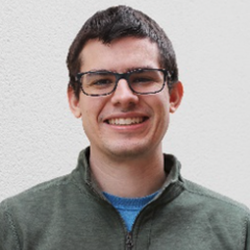 Eric Evert
Eric Evert
PhD adviser: J. William Helton (University of California, San Diego)
Postdoc mentor: Aravindan Vijayaraghavan
Evert is currently an assistant professor of mathematics at the University of Florida. His research interests include free (matrix) convexity and tensor decompositions and approximations. He also studies functional analysis, matrix convex sets, noncommutative polynomials, multilinear algebra, and low rank approximation.
As a Shaw Family CS+X postdoctoral fellow in Northwestern Computer Science, Evert taught two courses focused on the mathematical aspects of computer science — COMP_SCI 212: Mathematical Foundations of Computer Science and COMP_SCI 496: Mathematical and Computational Foundations of Tensors and Applications. Evert was mentored by Aravindan Vijayaraghavan, associate professor of computer science and (by courtesy) industrial engineering and management sciences at Northwestern Engineering.
Evert previously held a postdoctoral researcher position at KU Leuven, Belgium, in the group of Lieven De Lathauwer. He earned a PhD in mathematics in 2018 from the University of California, San Diego, and a bachelor’s degree in mathematics from Virginia Tech.
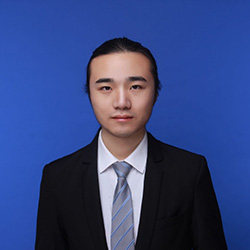 Yiding Feng (PhD ’21)
Yiding Feng (PhD ’21)
PhD adviser: Jason Hartline
This fall, Feng will join the Hong Kong University of Science and Technology as an assistant professor of industrial engineering and decision analytics. He is currently a postdoctoral principal researcher at the University of Chicago Booth School of Business.
Feng's research focuses on developing algorithms and policies in online marketplaces.
After earning a PhD in computer science from Northwestern Engineering in 2021 under the supervision of Hartline, Feng completed a position as a postdoctoral researcher at Microsoft Research Lab – New England.
Feng received a B.Eng. in computer science and technology from Shanghai Jiao Tong University in 2016.
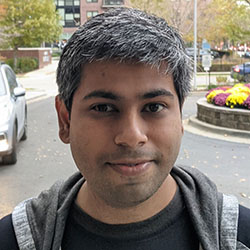 Suprovat Ghoshal
Suprovat Ghoshal
PhD advisers: Arnab Bhattacharyya and Siddharth Barman (Indian Institute of Science, Bangalore)
Postdoc mentors: Konstantin Makarychev (Northwestern) and Yury Makarychev (TTIC)
Ghoshal plans to join Indiana University in winter 2025 as an assistant professor.
Currently a joint postdoctoral scholar at Northwestern Engineering and TTIC, Ghoshal is advised by Konstantin Makarychev, professor of computer science at Northwestern Engineering, and Yury Makarychev, professor of computer science at TTIC.
Ghoshal’s primary research focus is the theory of approximation algorithms and hardness of approximation of discrete and continuous optimization problems. He also investigates the approximability of constraint satisfaction problems with global constraints, error correcting codes, and computational learning theory.
After earning a PhD from the Indian Institute of Science, Bangalore, advised by Arnab Bhattacharyya and Siddharth Barman, Ghoshal held a postdoc position at the University of Michigan, mentored by Euiwoong Lee.
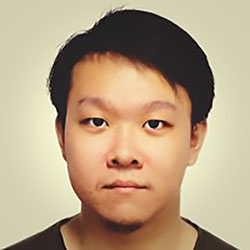 Peng Kang (PhD ’24)
Peng Kang (PhD ’24)
PhD adviser: Oliver Cossairt
This fall, Kang will begin his role as an assistant professor at the University of Illinois Springfield, specializing in artificial intelligence.
He recently earned his PhD in computer science, advised by Oliver Cossairt, adjunct associate professor of computer science and of electrical and computer engineering at Northwestern Engineering. Kang also collaborated closely with Aggelos Katsaggelos, Joseph Cummings Professor of Electrical and Computer Engineering at Northwestern Engineering.
While at Northwestern, Kang also benefited significantly from the mentorship of Zach Wood-Doughty, assistant professor of instruction, and Mohammed Alam, assistant professor of instruction and deputy director of the Master of Science in Artificial Intelligence program.
Kang’s research interests encompass recommender systems, deep learning, machine learning, computer vision, image processing, and robotics.
He holds a master’s degree in computer science from McGill University and a bachelor’s degree in software engineering from Sun Yat-sen University in Guangzhou, China.
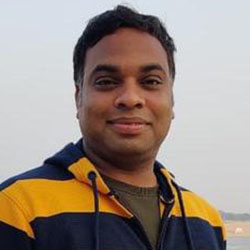 Saurabh Kumar
Saurabh Kumar
PhD advisers: Sandeep Kumar Shukla (IIT Kanpur) and Biswabandan Panda (IIT Bombay)
Postdoc mentor: V.S. Subrahmanian
S. Kumar joined the Department of Computer Science and Engineering at the Indian Institute of Technology (IIT) Hyderabad as an assistant professor this month.
As a member of the Northwestern Security and AI Lab (NSAIL), S. Kumar studied cybersecurity, Android security, malware analysis, and cyber forensics with NSAIL director V.S. Subrahmanian, Walter P. Murphy Professor of Computer Science at Northwestern Engineering and a faculty fellow at Northwestern's Buffett Institute for Global Affairs.
S. Kumar earned a PhD in computer science and engineering from IIT Kanpur, advised by Sandeep Kumar Shukla (IIT Kanpur) and Biswabandan Panda (IIT Bombay).
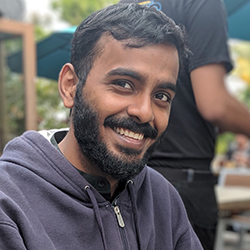 Vishesh Kumar
Vishesh Kumar
PhD adviser: Matthew Berland (University of Wisconsin–Madison)
Postdoc mentor: Marcelo Worsley
V. Kumar is an incoming assistant professor at Vanderbilt University’s College of Education and Human Development. He will join the emerging, multidisciplinary Learning Incubator: a Vanderbilt Endeavor (LIVE) center.
For three years, V. Kumar worked as a postdoctoral researcher in computer science and learning sciences with Marcelo Worsley’s Technological Innovations for Inclusive Learning and Teaching (tiilt) Lab. V. Kumar led the development of numerous tools and activities for the SportSense project, which merges physical activity with physical computing to demonstrate how computer science is applied to study and improve athletic performance, and how sports can be used to help students better understand STEM concepts.
In 2021, V. Kumar earned a PhD in curriculum and instruction through the University of Wisconsin-Madison’s Design, Informal, and Creative Education program. He received a bachelor’s of design from the Indian Institute of Technology Guwahati, India, in 2015.
Worsley is the Karr Family Associate Professor of Computer Science at Northwestern Engineering and associate professor of learning sciences at Northwestern’s School of Education and Social Policy.
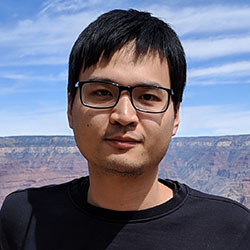 Yingkai Li (PhD ’22)
Yingkai Li (PhD ’22)
PhD adviser: Jason Hartline
Postdoc mentors: Dirk Bergemann and Yang Cai (Yale University)
Prior to joining the National University of Singapore as an assistant professor in economics, Li completed a postdoctoral fellowship at the Cowles Foundation for Research in Economics at Yale University.
Li's research interests include mechanism design, information design, algorithmic game theory, and online algorithms and learning.
Li earned a PhD in computer science at Northwestern Engineering in 2022, advised by Hartline. He obtained a master’s degree in computer science from Stony Brook University in 2018 and completed a bachelor’s degree from Shanghai Jiaotong University in 2015.
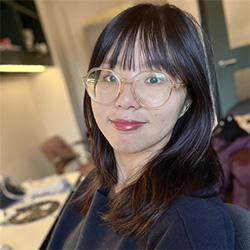 Ning Luo
Ning Luo
PhD adviser: Ruzica Piskac (Yale University)
Postdoc mentor: Xiao Wang
A member of the 2023 cohort of Electrical Engineering and Computer Science Rising Stars, Luo will join the Department of Electrical and Computer Engineering at the University of Illinois Urbana-Champaign as an assistant professor this fall.
Ning's research combines formal methods, automated reasoning, programming language, and cryptography to achieve security, verifiability, and confidentiality in practical and challenging scenarios. She was advised by Xiao Wang, assistant professor of computer science at Northwestern Engineering.
Prior to joining Northwestern, Luo earned a PhD in computer science in 2022 from Yale University. In 2021, she was a visiting graduate student at the Simons Institute for the Theory of Computing at the University of California, Berkeley.
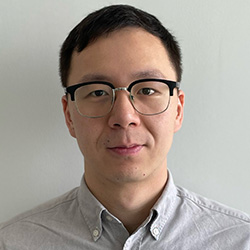 Chenkai Weng
Chenkai Weng
PhD adviser: Xiao Wang (degree expected August 2024)
Weng will join Arizona State University’s Ira A. Fulton Schools of Engineering this fall as an assistant professor of computing and augmented intelligence. He is a PhD candidate in computer science advised by Wang.
Weng received a J.P. Morgan AI Research PhD Fellowship last year in recognition of his work advancing cutting-edge research in cryptography. He studies applied cryptography, with a particular focus on the design, analysis, and implementation of secure multi-party computation and zero-knowledge proof protocols. Weng also builds secure systems by applying advanced cryptographic techniques to various fields, including databases, networking, formal verification, machine learning, health care, and decentralized systems.
Weng earned a master’s degree in computer science at Northwestern Engineering in 2023 and a bachelor’s of science degree in information security from Xidian University in Xi’an, China, in 2019.
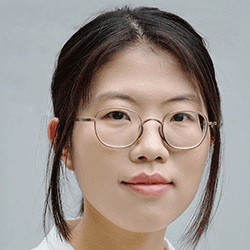 Fumeng Yang
Fumeng Yang
PhD adviser: David Laidlaw (Brown University)
Postdoc mentor: Matthew Kay
This fall, Yang will join the Department of Computer Science at the University of Maryland, College Park, as an assistant professor.
Yang was a postdoctoral fellow in the MU Collective, funded by the CRA/CCC's CIFellows program. She studied human-computer interaction and visualization with lab codirector Matthew Kay, associate professor of computer science at Northwestern Engineering and associate professor of communication studies at Northwestern’s School of Communication.
Yang’s research focuses on visual explanation and uncertainty visualization for decision-making within practical domains including elections, public policy, and education. She also investigates model explanation, data and artificial intelligence literacy, perception and cognition, and virtual/augmented reality.
Yang earned a PhD in computer science from Brown University, a master’s degree from Tufts University, and a B.Eng. degree from Shandong University, China.
